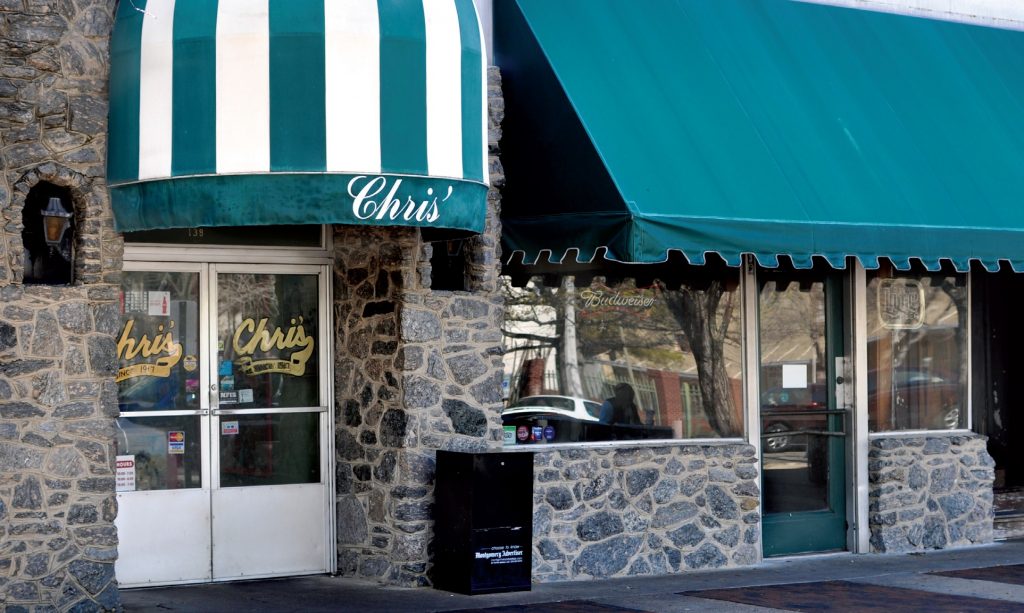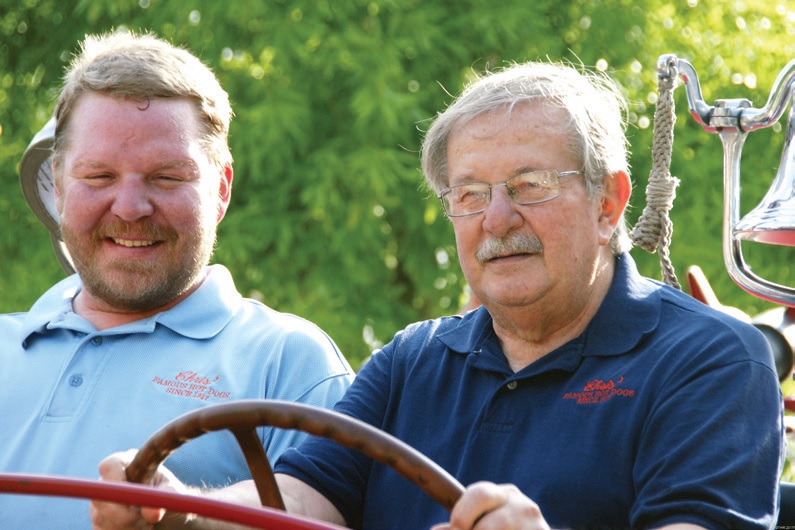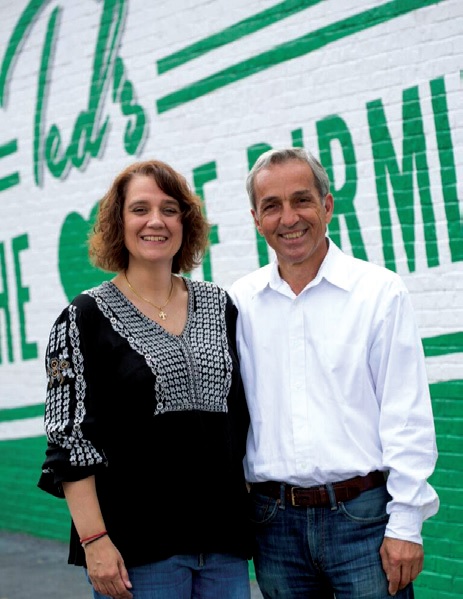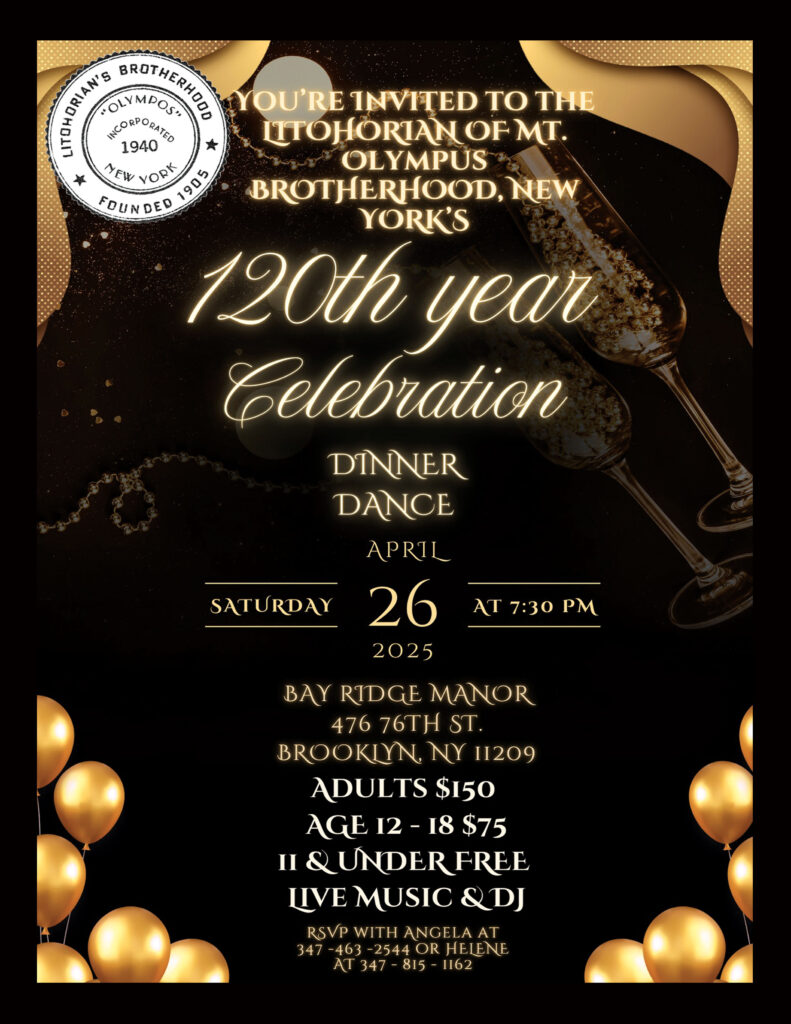Kalos Irthate, Y’all!
Posted by estiator at 13 December, at 07 : 37 AM Print

In the midst of the pandemic, Alabama’s long-standing Greek-owned restaurants gain national recognition.
By Michael Kaminer
When Conde Nast Traveler spotlighted Greek cuisine as Alabama’s signature food in September, it took some readers by surprise. Locals know the role Greeks have played in their state’s culinary heritage, but it may be news to outsiders. Greek immigration to Alabama began in earnest in the 19th century. The restaurant business, with its low barriers to entry, became a natural fit for industrious new arrivals. Greeks didn’t open Greek restaurants—that might have been too exotic—but instead offered familiar favorites and Southern staples.
“There are a lot of Greek restaurant owners here but not a lot of Greek restaurants,” says Beba Toupoulis of Ted’s Restaurant in Birmingham, which Conde Nast Traveler spotlighted. “Southern food was a way to assimilate.” Eventually, owners would sneak in a homeland dish or two—pastitsio next to the fried chicken, say, or Greek salad alongside the meatloaf.
Along with Ted’s, the Traveler story included James Beard Award semifinalist Johnny’s, steak/seafood house Niki’s West, and The Bright Star, which bills itself as America’s oldest family-owned restaurant. Now, after weathering political and economic challenges over the decades, these beloved local spots are facing unprecedented headwinds from COVID-19.
Estiator spoke with owners of three of the most celebrated Alabama restaurants with Greek roots, all of which are still owned and operated by Greeks.

ANASTASIA “STACEY” CRAIG
The Bright Star, Bessemer
thebrightstar.com
Greek immigrant Tom Bonduris founded The Bright Star in 1907 as a 25-seat café. In 1923, Tom’s cousins Pete and Bill Koikos emigrated from Peleta with his help. They purchased an ownership interest in 1925; Bill’s sons Jimmy and Nicky have owned and operated The Bright Star since 1968. Estiator spoke with Anastasia Craig, Bill Koikos’ niece (below) and the restaurant’s business manager.
We’re the oldest family-owned restaurant in the United States. What’s behind our longevity? I credit family ownership, and the mix of Southern hospitality and Greek philotimo. I see that through myself as part of the fourth generation to run the restaurant. I think about my mother’s brothers, who also owned the restaurant, my grandfather before that, and how humbly they all served. They took care of their guests, and they took care of their employees—that can’t be emphasized enough.
The Greek immigrant drive is also behind The Bright Star’s success. My grandfather came from nothing. But he had incredible drive and an intensive caring. He was constantly putting money back into the business, refusing to rest on his coattails. He always want to do better and to make things better.
We’ve been growing since we opened our doors in 1907, when Bessemer was a booming coal and iron-ore mining town. At lunch, we serve a traditional Southern meat-and-three menu, like country-fried steak and chicken with dumplings. But we also offer Greek salad, Greek chicken, and beef tips and rice Greek-style. At dinner, we’re more a steak and seafood place. Our Greek beef tenderloin has been voted best steak in Alabama. Greek-style snapper is our signature dish.
I hope we’ll continue to grow into the 21st century. COVID-19 has been a challenge. In the beginning, we had to adapt to losing 80% of our business overnight. We had to cut payroll. A PPP loan helped sustain us through that eight-week period.
We’re a 300-seat restaurant in a historic downtown area with narrow sidewalks, so we’ve never had outdoor seating. The governor shut us down around St. Patrick’s Day. We were allowed to reopen around Mother’s Day. So we were closed for eight weeks. We could do curbside, and we offered takeout, which we’ve always had. We’ve partnered with a local delivery service. We don’t do a lot of delivery business; our kind of food doesn’t travel well. It’s not fast food. But delivery is probably a growth opportunity. We invested in online ordering through a POS system for the first time. If there’s a silver lining, that was something we needed to do, and we did.
What do I see for the next hundred years? We’re fortunate because a lot of growth is coming our way. There’s a Mercedes plant planned nearby, and an Amazon distribution center has opened in the area. We’re well-positioned. We’re so proud of the tradition after 100 years. I just want to modernize and make sure we’re smart in how we work. My uncles were so focused on the business that they didn’t do a lot of business analysis. It’s a different mindset. The bottom line is we’re going to continue to offer quality and treat guests right.

COSTAS “GUS” KATECHIS
Chris’ Hot Dogs, Montgomery
chrishotdogs.com
Opened in 1917 by Christopher Anastasios Katechis, an immigrant from Erikousa, Chris’ Hot Dogs has become a legendary presence in Alabama’s capital. Its customers have included Franklin D. Roosevelt, Harry Truman, Dr. Martin Luther King, Jr., George W. Bush, Elvis Presley, Hank Williams, Clark Gable, Whoopi Goldberg, and every Alabama governor since 1917. The restaurant’s secret-recipe chili sauce gets shipped worldwide to hungry fans. Estiator spoke with Gus Katechis, Christopher’s grandson, who runs the business with his father, Theo.
We’ve been here more than a century. We started as a fruit stand and added hot dogs in the 1920s. We offered curb service until the 1940s; the city stopped it after the war because they said we were blocking traffic. People used to park two- or three-deep in front. Since the pandemic began, we got a new mayor, and he apparently has no idea we’re not supposed to be doing curb service. So we started it again.
The pandemic has been stressful, of course. But we’ve never shut down, and won’t shut down now. We’ve worked our butts off. From our cash register to the grill to the curb, it’s 70 feet. One of my guys walked 70 miles in a four hour shift going from grill to curb.
Alabama shut down everything for about 10 weeks. We had tables outside. We didn’t really serve them, but they were outside. Then the state said, you can’t provide tables. So customers started bringing their own tables. Luckily, our menu does very well as to-go food—hot dogs, hamburgers, fries, onion rings. It’s hard to get a meat-and-three to go.
When everyone else opened back up, we slowed down a bit. Employees never lost a paycheck. PPP helped. We have had to tighten our belts. Ground beef prices have shot up to about $5.40 from $2 a pound. We have to charge a fee for ground beef patties. US Foods, one of my two suppliers, didn’t even have them for a while. We go through 300 pounds of ground beef a week. I had to get frozen beef for the first time. You have to adjust, but you have to make sure the quality is there.
With this restaurant, my grandfather lived the American dream. I learned to count in the back office. My father would hand me a stack of ones, then I graduated to a stack of fives, then 20s. I learned to count using cash. After I graduated from Auburn University with a degree in fishery science and agriculture, I became a biologist for the state of Florida. But in 2010, when my father turned 65, he asked me if I would come home. I’ve been in the restaurant ever since. He still comes in and flips burgers; I deal with the headaches. He’s 75, and he’s not going to quit.
What makes this place so special? First of all, the food is good. We don’t do a lot, but we do it really well. We’re also in Montgomery, the birthplace of civil rights and the Civil War. We’re a block from where Rosa Parks got arrested, and two blocks from the Rev. Martin Luther King Jr.’s church. He came every Sunday. He’d talk about problems with the Klan with my grandfather. The Klan was against blacks, Greeks, Jews. My grandfather would say, “if you’re money’s green, you’re a friend of mine.” Likewise, my dad never understood segregation. He’d say, “Black people’s money, white people’s money, all looks the same to me.” We laugh at racism here. Montgomery dealt with it 60 years ago.
In February, we started something called Agape Meals as part of a local campaign called Paying It Forward. You order a five-dollar meal, get a ticket, post it to the wall, and a homeless person can grab that ticket and enjoy that meal. It’s a ministry.

BEBA AND TASOS TOULOUPIS
Owners, Ted’s Restaurant, Birmingham
tedsbirmingham.com
Ted’s story starts in 1960, when Ted Sarris—an immigrant from Tsitalia—bought Birmingham’s Old Hickory Restaurant from his uncle and boss, Jim Sarris. Renaming it Ted’s Old Hickory in 1973, Sarris moved the restaurant to its current location. After a chance meeting with Tasos Touloupis—a Thessaloniki native who managed a local country club—“Mr. Ted” decided Tasos and wife Beba would make great stewards of his legacy. The Touloupises have owned 99-seat Ted’s since 2000.
When we took over the restaurant, we knew we had to keep it as it was. We really bought a clientele. We realized this place was an institution, and that we’d have to honor it. We’ve tweaked and added some stuff. But it’s basically Mr. Ted’s meat-and-three Southern dishes along with a few Greek items. My take is that meat-and-three is a variation on what Greek diners in New York have always done, just massaged a bit.
The magic of this place is its food and people. Ted’s is a community and a part of Birmingham’s community and culture. We’re very much about Southern hospitality melded with Greek hospitality.
The pandemic has made every day a learning experience. We’ve learned to dance on the spot. We tried curbside and takeout, but it didn’t do well. Our model is cafeteria-style. We were down to about 20% of our usual business. We had to let almost everybody go, though we’ve started bringing them back. It was a struggle, but I didn’t want to shut down.
A blessing came along when we teamed up with UAB [University of Alabama Birmingham] hospital. We’ve participated in a program called Feeding the Heroes; our customers donated with the provision that the program used our restaurant to feed frontline workers. Those customers helped us stay afloat.
After Memorial Day, the state allowed us to reopen at 50% capacity. We moved some tables outside and set up tents. It involved a lot of extra labor. Luckily, we also have the support of Mr. Ted, who still owns the building and helps as far as rent is concerned.
Our baked chicken Greek-style is a signature. Souvlaki is a signature item. So are our Southern dishes: homemade mac ‘n’ cheese, collard greens, awesome fried green tomatoes. When you walk in here and see 16 vegetables and eight or 10 meats, it can be a little overwhelming for rookies and Northerners. They get dazzled.
We’ve had many civic affiliations over the years, but Tasos is especially proud of our relationship with Ronald McDonald House. Every week for the last 15 years, we’ve fed families there—40 or 50 people each Friday. During those 15 years, we’ve been so blessed to meet those families.


















